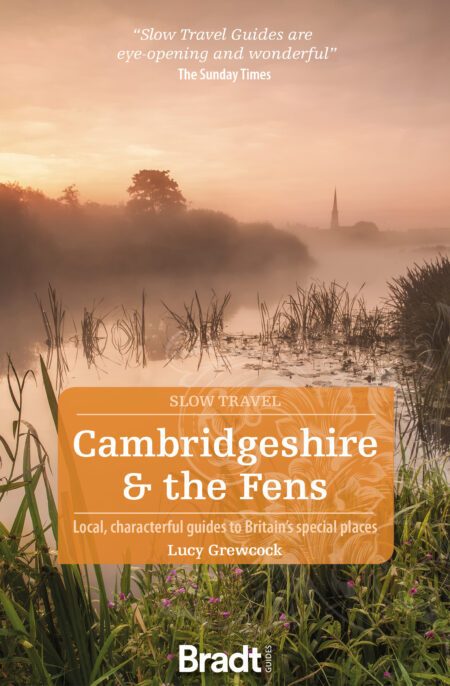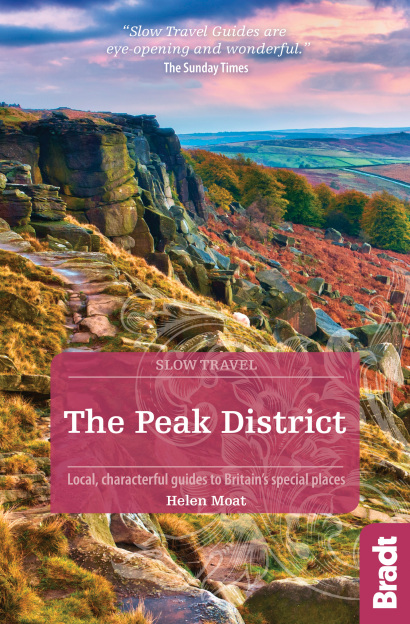Forget football or horse-racing, when it comes to competitions, these unassuming villages like to do things a little differently. From orange racing to worm-charming, these are the most unusual championships in England.
World Pea-Shooting Championships, Cambridgeshire
North of Mepal, the Cambridgeshire village of Witcham bursts into life on the second Saturday in July each year when it hosts the World Pea Shooting Championships. Held on the village green since 1971, the championships invites participants to shoot dried peas at a target, with top scores for hitting the bullseye.
Regulation peas are supplied but you can bring your own shooter. The prize is the John Tyson Shield, named after the school headmaster who launched the event in 1971 – apparently, he took inspiration from the pea shooters he confiscated from schoolchildren.
Cheese Rolling Championships, Cotswolds
Cooper’s Hill is one of the most jaw-dropping points of the Cotswold ridge. As this is common land, you are entitled to walk on the hill – and the Cotswold Way passes along its foot – and for many, the views from these staggering heights are reason enough to make the trip.
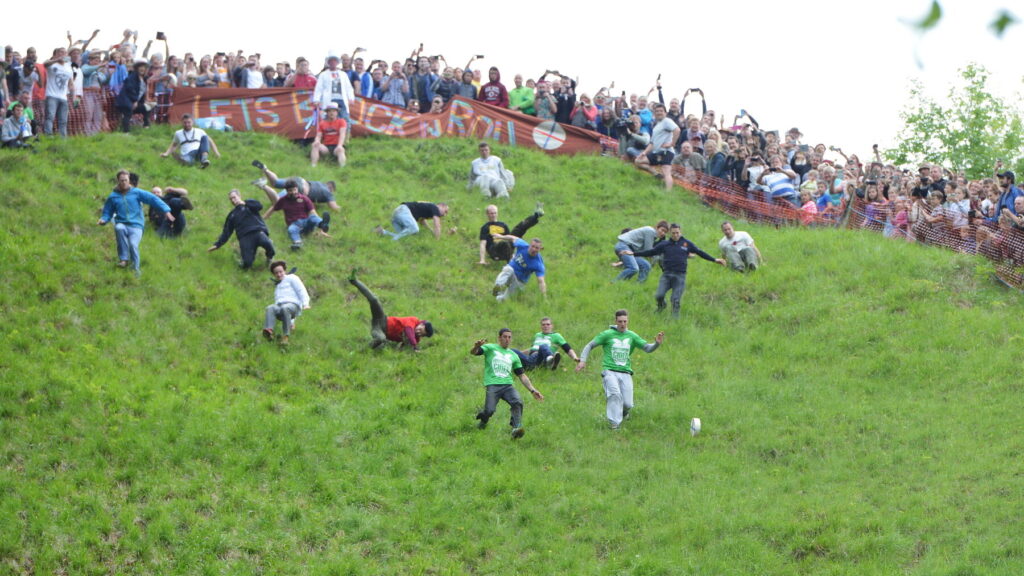
However, what makes this Cotswolds peak especially unique is its role as host to one of England’s most bizarre championships. Every year, hundreds of people from across the country, who one can only assume must be bordering on insanity, flock to Cooper’s Hill in order to throw themselves down the slope in pursuit of a giant wheel of Double Gloucester cheese. The annual cheese-rolling event, which takes place every spring bank holiday at the end of May, is a highlight of the quirky Cotswold calendar.
Totnes Orange Race, Devon
The Totnes & District Show, on the last Sunday in July, is one of the biggest one-day agricultural shows in Devon, dating back 100 years and highlighting the region’s farming roots. Totnes Carnival is held in mid August, with parades, children’s fancy-dress competitions and so on. Unique to the town, however, is the Orange Race which follows the carnival.
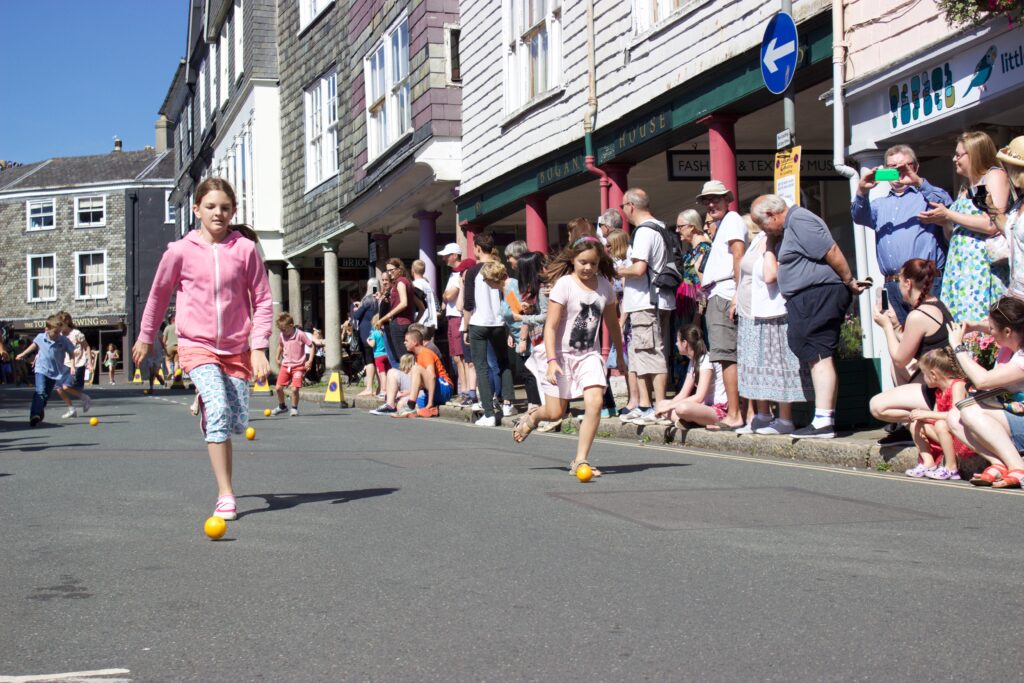
Locals pursue the fruit down the hill, the speed (and danger) of the pursuit dictated by the age of the contestant; there are races for all age groups, from four to over 60. If you want to see the true definition of breakneck speed, watch the adult men’s group. Apparently Sir Francis Drake started the ball rolling, so to speak.
Worm-Charming Championships, Cheshire
Worm charmers young and old do battle every June on the playing field at Willaston Primary Academy, just two miles east of Nantwich. Competitors descend on the 144 neatly marked out 3m² plots for 30 minutes of cajoling the slippery customers from their soily lairs without resorting to digging, an event overseen by the International Federation of Charming Worms and Allied Pastimes, also your go-to body for underwater Ludo and indoor hang-gliding.
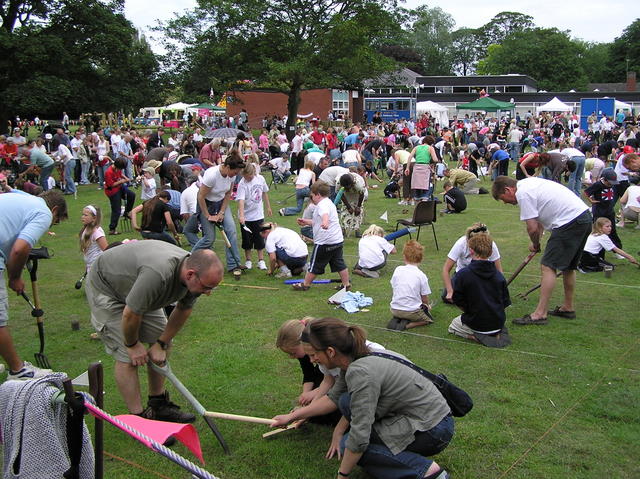
A variety of techniques are employed; most wiggle a garden fork in the turf to stimulate vibrations said to be similar to rainfall, but brute force is also popular – jumping up and down, bashing the ground – and some worms are even serenaded on musical instruments such as the tuba. When the bell rings, the cacophony ends and the count begins, with trophies awarded for categories including Most Worms, Heaviest Worm and Chief Wormer. Meanwhile, the worms must wait until after dusk, when the birds have gone to their roosts, to safely return home.
What’s a good trawl, you might ask? Well, the world record for the most worms charmed is 567, unearthed by 10-year-old Sophie Smith in 2009.
Dorset Knob throwing, Dorset
The small village of Morcombelake has long been associated with a Dorset icon, for it was here that Moores Biscuits opened their bakery in 1880. Today, this family business is in the hands of the fifth generation. Although Moores now has a factory in Bridport, the Morcombelake bakery is still active. Bread is baked on-site from Tuesday to Friday. As well as baked goods, including some excellent doughnuts and of course, the legendary biscuits.
The most famous of the biscuit selection is the Dorset Knob, a savoury biscuit baked three times. This treat is so iconic, in fact, that it even has its very own festival centred around a Dorset Knob throwing competition. Three knobs are thrown underarm and the furthest is measured at its final resting place; unlimited entries are available per contestant and there are no age restrictions so this is one for all the family!
Hen Racing Championships, Peak District
You may not have a thoroughbred racehorse, but you could ‘beg, steal or borrow’ a hen to enter the prestigious World Championship Hen Racing Competition at the Barley Mow Pub, held annually on the first Saturday in August. This may sound like an April Fools, but the race is a very serious business (well, sort of).
The official World Championship Hen Races have taken place in this Derbyshire village since 1992, although the history of hen racing in the area goes back much further to when local villages competed against each other using their fowl. The hens are given sardonic names such as Korma, Kebab, Nugget and Drumsticks or more traditional country names like Flo Jo, Buffy, Jenny, Henry and Betty.
Pruned and pampered, they’re coaxed to run the 16yd course with the promise of the best chicken feed at the end, shaken in a bag or rattled in a tin. The fowls are given three minutes to reach the finishing line. Any squabbles between the competitive, or more likely food-greedy, hens result in disqualification. Beware that red card.
The commentary is full of double entendre and hen jokes: ‘That was a fowl!’ ‘Shame, he’s beaked early.’ ‘Poultry in motion.’ Some chickens ramble aimlessly, or even turn round and head back to the starting line. Others bolt through the course in a few seconds. Hire a chicken, or just turn up on the day with your hen and register. Be aware though, it’s claimed some of the competitors train their hens for months and put them through a rigorous exercise regime to keep them in tip-top condition. Otherwise, just sit back and enjoy the spectacle.
More information
For more information on these quirky championships and the English towns that host them, check out our Slow guides to the British Isles:
